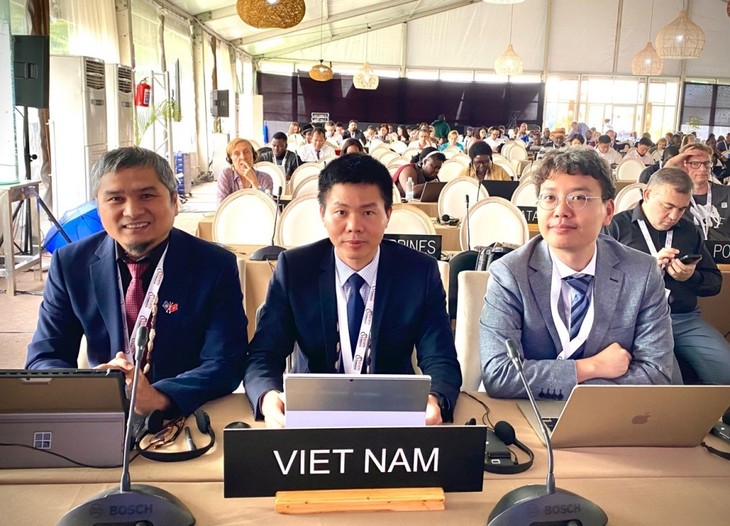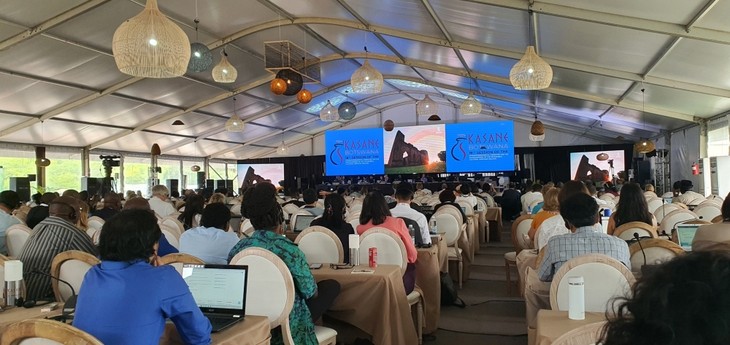(VOVWORLD) -Vietnam on Friday was elected Vice Chair of UNESCO’s Intergovernmental Committee for the Safeguarding of Intangible Cultural Heritage (2003 Convention), representing the Asia-Pacific region.
 The Vietnamese delegation attending the 18th session of the Intergovernmental Committee of the 2003 Convention. Photo: UNESCO Delegation. The Vietnamese delegation attending the 18th session of the Intergovernmental Committee of the 2003 Convention. Photo: UNESCO Delegation.
|
This is the second time Vietnam has been elected as a member of the Committee after its first term from 2006-2010. Ambassador Le Thi Hong Van, Head of the Permanent Delegation of Vietnam to UNESCO, said that Vietnam was once again trusted to be elected Vice Chair at one of UNESCO's key specialized agencies.
This affirms Vietnam's increasingly high position and reputation globally, shows the international community’s support for and trust in Vietnam's ability to contribute to and manage this organization, and recognizes Vietnam's contributions to cultural cooperation and intangible cultural heritage in particular, she said.
Vietnam will have more favorable conditions in achieving the goals and priorities of the 2003 Convention, making intangible culture heritage as a driving force for sustainable development, cultural diversity, creativity and dialogue between cultures, social cohesion, and increased participation of communities, women and youth.
 The 18th session of the Intergovernmental Committee of the 2003 Convention. Photo: UNESCO Delegation. The 18th session of the Intergovernmental Committee of the 2003 Convention. Photo: UNESCO Delegation.
|
According to Ambassador Van, this year, Vietnam has had successful cooperation with UNESCO. The country was elected Vice President of the UNESCO General Assembly and to the World Heritage Committee; its Ha Long Bay-Cat Ba Archipelago was registered as a world natural heritage; Da Lat and Hoi An cities joined the Creative Cities Network; Physician Hai Thuong Lan Ong Le Huu Trac’s 300th birthday was celebrated by a UNESCO Resolution.
The Intergovernmental Committee of the 2003 Convention, consisting of 24 members, is UNESCO’s agency for safeguarding intangible cultural heritage. Its functions are to promote the objectives of the Convention, provide guidance on best practices, and make recommendations on measures for the safeguarding of the intangible cultural heritage.